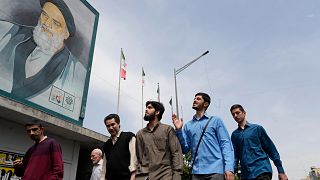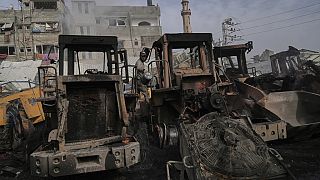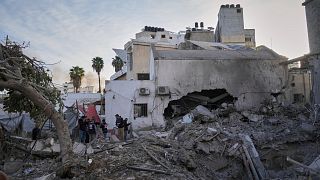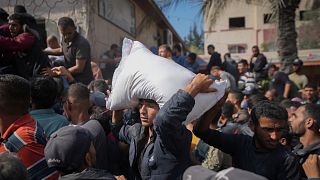Gaza
Israel’s military on Friday (Oct. 13) directed the evacuation of northern Gaza, a region that is home to 1.1 million people within 24 hours, a U.N. spokesman said.
Residents of one of the world's most densely populated areas are desperate after days of bombing.
"Today we do not know where to go. There is no safe place. We have turned to UNRWA and to the United Nations," Mohamed said.
"Today Israel is committing massacres against civilians and our children are now under the rubble. We do not know where our children are and we do not know what to do. We have no food or water. I am appealing to the United Nations in front of UNRWA building. Where do we go?"
U.N. spokesman Stéphane Dujarric called the evacuation order “impossible” without “devastating humanitarian consequences.”
As Israel pounds Gaza from the air in retaliatory action, Hamas militants have fired back thousands of rockets.
Civilians caught up in the fighting have borne the brunt of the war.
"There was an evacuation from the beach camp to here in the UNRWA schools and UNRWA clinics, and they were safe in a shelter. Suddenly a missile hit here between the school and the UNRWA clinic to intimidate the people and destroy them, there is more than one martyr here," Masad, another Gaza resident said.
Panic and bloodshed
The evacuation order sparked panic among civilians and aid workers already running from Israeli airstrikes and contending with a total siege that offers no way out and a territory-wide blackout.
Israel said it needed to target Hamas’ military infrastructure, much of which is buried deep underground.
Hamas, meanwhile, called on residents to stay in their homes, saying Israel “is trying to create confusion among citizens and harm the cohesion of our internal front.”
A new war Cabinet was sworn in Thursday (Oct. 11).
A visit by Secretary of State Antony Blinken, along with shipments of U.S. weapons, offered a green light to Israel to drive ahead with its military response, even as international aid groups warned of a worsening humanitarian crisis.
Israel has halted deliveries of basic necessities and electricity to Gaza’s 2.3 million people and prevented entry of supplies from Egypt.
Prime Minister Benjamin Netanyahu vowed to “crush” Hamas after the militants stormed into the country’s south on Saturday (Oct.7) and massacred hundreds of people, including killings of children in their homes and young people at a music festival.
Hamas’ assault Saturday and smaller attacks since have killed more than 1,300 people in Israel, including 247 soldiers — a toll unseen in Israel for decades — and the ensuing Israeli bombardment has killed more than 1,530 people in Gaza, according to authorities on both sides. Israel says roughly 1,500 Hamas militants were killed inside Israel, and that hundreds of the dead in Gaza are Hamas members. Hundreds of Palestinian and Israeli families are in mourning and many have been wounded on both sides.
Hamas said Israel’s bombardment has killed 13 of the hostages, including foreigners. It did not give the nationality of the foreigners, saying they were killed over the last 24 hours. There was no immediate Israeli comment.
Analysts fear Israel's evacuation order could signal an impending ground offensive.
Syrian state media reported that Israeli airstrikes on Thursday (Oct. 12) put two Syrian international airports out of service.













Go to video
Egypt FM Abdelatty: Egypt is making "continuous, genuine and non-stop efforts” for ceasefire in Gaza
01:05
Israeli tourists barred from Maldives as act of support for Palestinians
Go to video
Palestinian health official condemns Israeli strike on hospital in Gaza City
Go to video
Palestinians face displacement and uncertainty after new Israeli orders
01:29
Palestinians lined up for hours for food by a charity kitchen in central Gaza.
Go to video
Arab-Islamic foreign ministers call for ceasefire and reject relocation of palestinians from Gaza